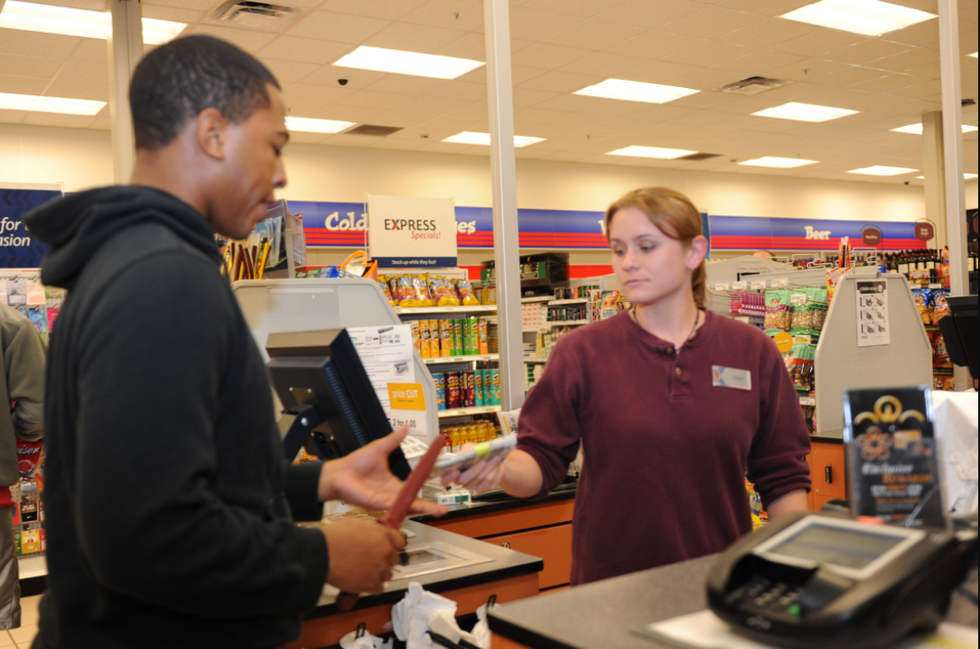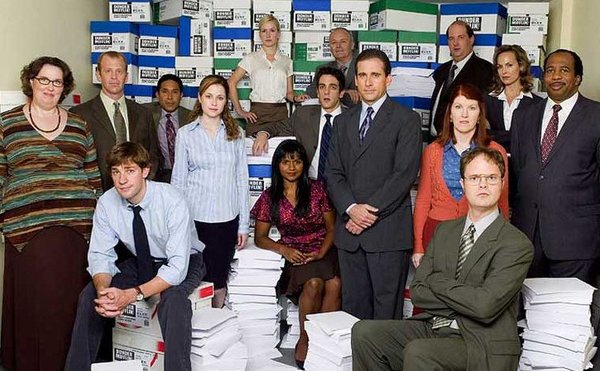When the shopping cart is full and everyone has circled the entire store from the produce aisles to the cosmetics aisle, the next option is choosing between the self-checkout and the human cashier. As technology has become more prevalent in society, the use of self-checkout stations has become more and more popular in fast food restaurants, supermarkets and retail stores.
However, just like how self-automated machines are replacing workers in larger industries at a more behind-the-scenes perspective, self-automated machines are replacing jobs closer to home right before the eyes of consumers in the form of self-checkout stations.
In order to maintain job opportunities for Americans, technological replacements for careers such as self-checkout machines should be discouraged.
The increasing number of companies using self-checkout systems to supersede human beings deprives Americans of employment opportunities. The main purpose of establishing these self-checkout stations is to benefit the company.
For example, Optimal Robotics, a company that designs self-checkout systems, explained that a four-station self-checkout system would save any company from paying for 150 labor hours per week.
Edward Rensi, former Chief Executive for Mcdonald’s, states how about half of the employees in McDonald’s have been cut since the 1960s because, "It's cheaper to buy a $35,000 robotic arm than it is to hire an employee whose inefficient making $15 an hour bagging French fries.”
Since machines are often more expeditious than humans and require no payment, they serve as methods for saving money for a company. However, while companies who have established self-checkout systems such as Home Depot, Panera and CVS are trying to satisfy their pecuniary interests, potential and current employees suffer at their expense.
In response to Walmart’s decision to establish 10,000 self-checkout stations in 2013, Frank Levy, an MIT professor of urban economics, sees the situation as, “a big problem” and explains that although self-checkout stations can create jobs, the net result is a loss of jobs as human cashiers gradually become replaced by machines.
For every self-checkout machine, a company will be able to save costs on labor, but for every self-checkout machine, there is also an American who could be working that job.
Choosing to use humans at cash registers is a simple step that will create jobs and opportunities for Americans to gain financial stability and work experience. Some may say that replacing people with self-checkout machines will have little effect on employees because the occupation of a “cashier” is not necessarily a “real world” career one can depend on.
However, the job of a cashier should not be diminished for the job can have as much influence and value to an individual financially and emotionally as any other occupation.
For example, Michael Gates Gill, a man who grew up knowing nothing but pleasure and abundance, describes how he turned around his life in his autobiography, "How Starbucks Changed My Life."
As someone who used to be a big-shot director for an advertising company receiving a six-figure salary, he learned the meaning of true happiness and humility by scrubbing the toilet, operating the cash register and making frappuccinos, coffee and iced tea.
If Starbucks had reached the extent of replacing employees with robotic baristas and self-checkout centers, Gill would not have been able to walk out of Starbucks a changed man. Taking coffee orders and calculating change can be just as influential to someone’s life as any other high-paying job.
So, the next time you go to the supermarket, think of the cashier and take your cart to a human being--not a self-checkout machine.








 Photo by
Photo by 









